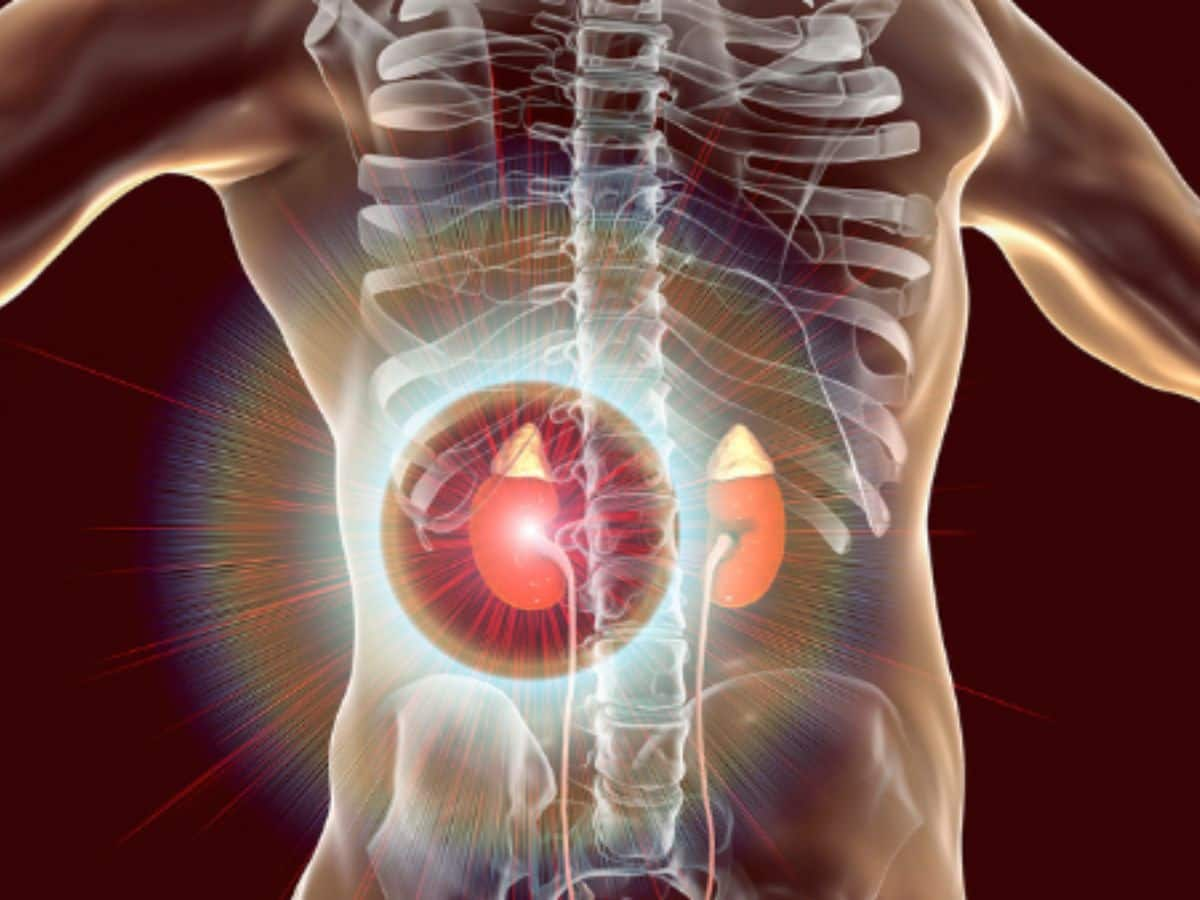Share this @internewscast.com

Is there blood clots inside your kidneys? Look out for these top 7 signs and symptoms of clogged kidneys that are most dominant in men.
Blood Clots In Kidney: Maintaining kidney health is essential for complete well-being, but unfortunately, some men may encounter unexpected kidney problems, like blood clots. Blood clots in the kidney sometimes give rise to unusual symptoms which often go unnoticed. Thus, recognizing them early is key to prompt diagnosis and treatment. In this article, we take a look at how blood clots affect your kidneys, and what symptoms your body may show when the kidneys are not functioning properly.
Blocked Kidney Symptoms: Top 7 Signs of Blood Clots Inside Kidneys
In easy terms, a blocked kidney or renal artery stenosis is when arteries carrying blood to the kidneys become cramped or blocked. Ignoring this condition can result in a variety of unpleasant symptoms and potentially serious complications. Men, in particular, might experience different symptoms from women. So, as a man, here are seven key signs of clogged kidneys that you should keep an eye on:
Pain And Discomfort
Blood clots lodged in the kidney frequently induce flank pain, one of the earliest signs. This discomfort, typically a dull pang on one side of the back around the kidney area, can fluctuate from slight uneasiness to intense pain and might be continuous or sporadic. Persistent flank pain, especially alongside other signs, implies immediate medical consultation.
Blood in Urine
Spotting blood in urine, medically termed hematuria, is another signature of kidney blood clots. Blood presence varies from visible to the naked eye (gross hematuria) to only noticeable under a microscope (microscopic hematuria). Hematuria must never be dismissed as it can signify various hidden health issues, inclusive of kidney blood clots.
Unusual Swelling
Fluid retention in the body from impaired kidney function can sometimes trigger swelling, especially in the legs, ankles, or feet, due to kidney blood clots. This condition referred to as edema, while less common, still mandates professional health examination to exclude severe conditions.
Unexpected Spike In Blood Pressure
High blood pressure or hypertension may also be a sign of kidney blood clots. Hypertension, often dubbed the silent killer, might not exhibit noticeable symptoms at first. Nevertheless, unexplained or consistent high blood pressure should be examined by a health expert, as it may hint at kidney problems.
Fever and Chills
Kidney blood clots may cause an infection leading to symptoms like fever and chills. These symptoms might imply an ongoing infection in the urinary tract or kidneys. Prompt medical attention is required if you experience fever and chills along with other unusual symptoms to prevent the infection progression.
Nausea and Vomiting
Nausea and vomiting could be signs of kidney blood clots, particularly when it affects kidney performance. Accompanied by decreased appetite and feelings of fatigue and malaise, these symptoms require a consultation with a healthcare provider for evaluation.
Change In Urination Cycle
Altered urination patterns such as frequent urination, urgent urination, or difficulty urinating may also suggest kidney blood clots. Associated pain or discomfort during urination further emphasizes this. Discussing any significant urination changes with a healthcare provider is essential.
Clogged Kidney Symptoms: What To Know About Preventing This Disease?
The above-mentioned top 7 unusual signs can show up in your body when there is blood clots formation inside the kidney. If you notice them, and especially if they persist or are severe, don’t delay in seeking medical counsel. Understand that only early medical intervention can considerably enhance health outcomes and mitigate complications related to kidney blood clots.










